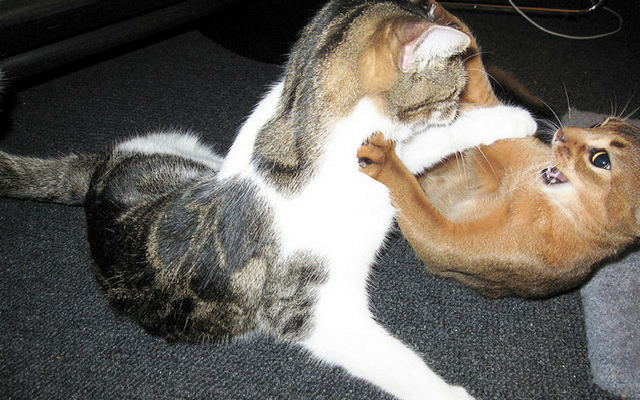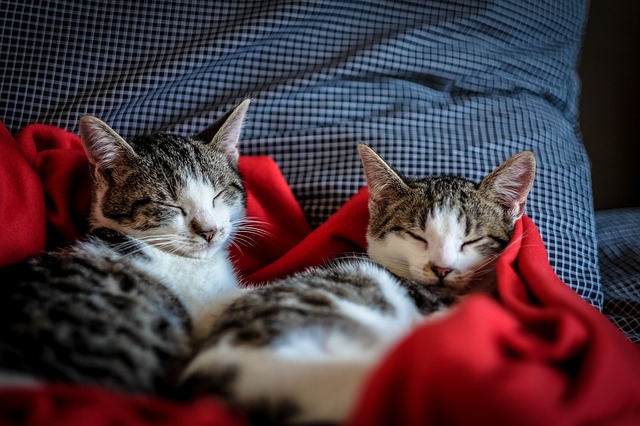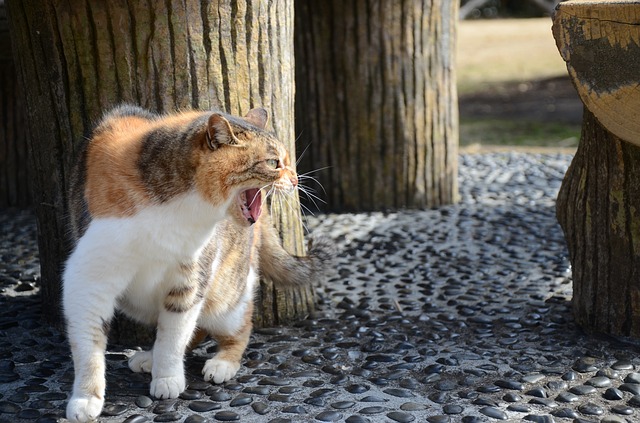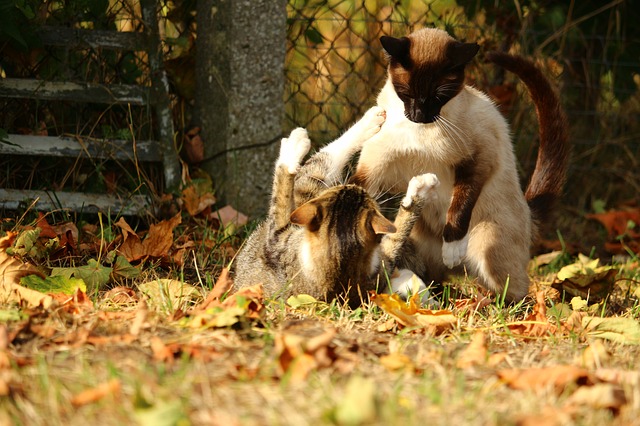Households with multiple feline family members enjoy more kitten cuddles, love, and companionship, but having more than one cat often leads to kitty quarrels. Cats are social creatures, but getting into fights isn’t unusual. Even cats who’ve lived in the same shared space for long periods of time can end up duking it out.
Sharp claws and teeth mean all cat fights are dangerous. Putting a stop to the aggressive behavior is in everyone’s best interest. But before you can make peace, you need to know what’s causing the fights. Here are a few possibilities.

#1 – Lack of Socialization
Socialization isn’t only for people and puppies: it’s also important for cats. Kittens that grow up with few opportunities to connect with other cats will struggle to make feline friends in their adult years.
A kitten’s prime window for socialization is between 2 and 14 weeks old. They learn new things every day during this time period, and it’s also when they start developing personalities.
Kittens who miss out on socialization with other cats when they’re young won’t be used to sharing close quarters when they’re older.
#2 – Territorial Instincts
Some cats are happy to share their homes with people and other animals, but for others, being territorial is in their nature. Your cat views both you and your home as their territory. Protecting what they see as theirs is an instinct they can’t always control. Families that introduce a new cat into what used to be a one-cat household are sometimes disappointed when the original kitty isn’t keen on sharing their space.
Sometimes the competition starts right away, but territorial instincts might not present themselves until several months or even years after the two cats are introduced. Most cats don’t become territorial until they’re fully mature. This usually happens between two and five years old. It could explain why two cats who used to get along are suddenly starting to fight.
#3 – Overstimulation and Fear
If the household is particularly noisy or excited, the cats will pick up on that energy. The overwhelming stimulation will cause them to behave unusually. They’re already on edge because of what’s happening in the house, and the appearance of a kitty housemate could push them past excited and into aggressive.
Cats (and people, too) don’t make the best decisions when they’re mad, sad, scared, or excited. They let their emotions get the best of them, and they tend to lash out at whoever is closest—even if it’s their long-time feline friend.
#4 – Medical Conditions
People are irritable when they don’t feel well, and cats are the same way. A sudden change in a cat’s personality could be a sign of a serious medical condition.
According to PetMd, arthritis, dental disease, and traumatic injuries are possible reasons why a cat starts acting aggressively. They could be lashing out in order to keep people and other pets from touching them and causing more pain.
Older cats might also turn to aggression if they gradually start losing their eyesight or hearing. Cognitive decline and a neurological problem could also be to blame. If your cat who used to be gentle and loving toward their kitty housemates suddenly starts bringing out the claws on a regular basis, talk to your vet about possible medical explanations.
Once you uncover the root of the problem, you’ll be able to come up with a plan to restore the harmony in your household. Mending fences between two quarreling cats will always take time and consistency. With the right strategy, however, the effort might save your sanity and keep your house at peace.
Featured image via Flickr/John Morton




